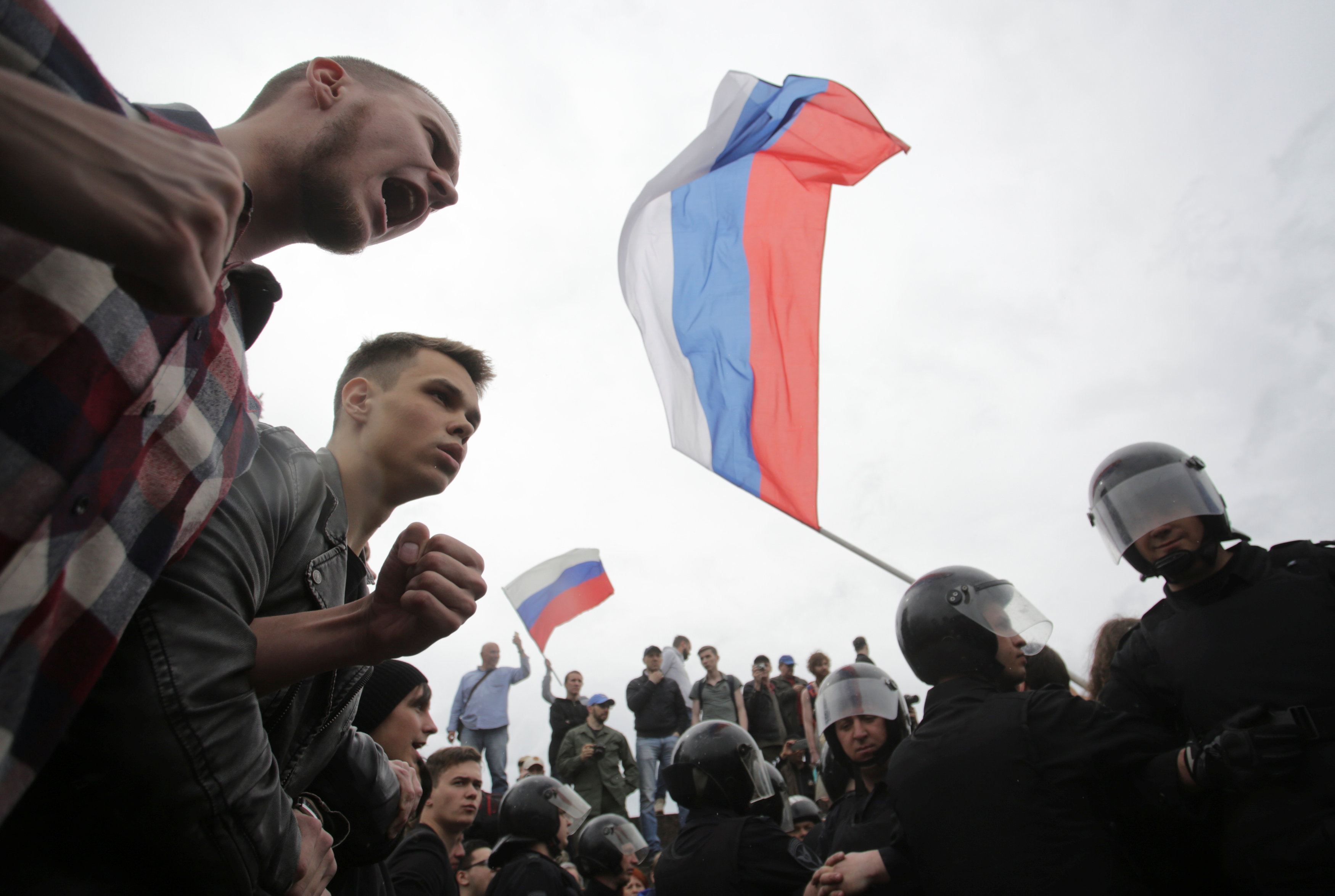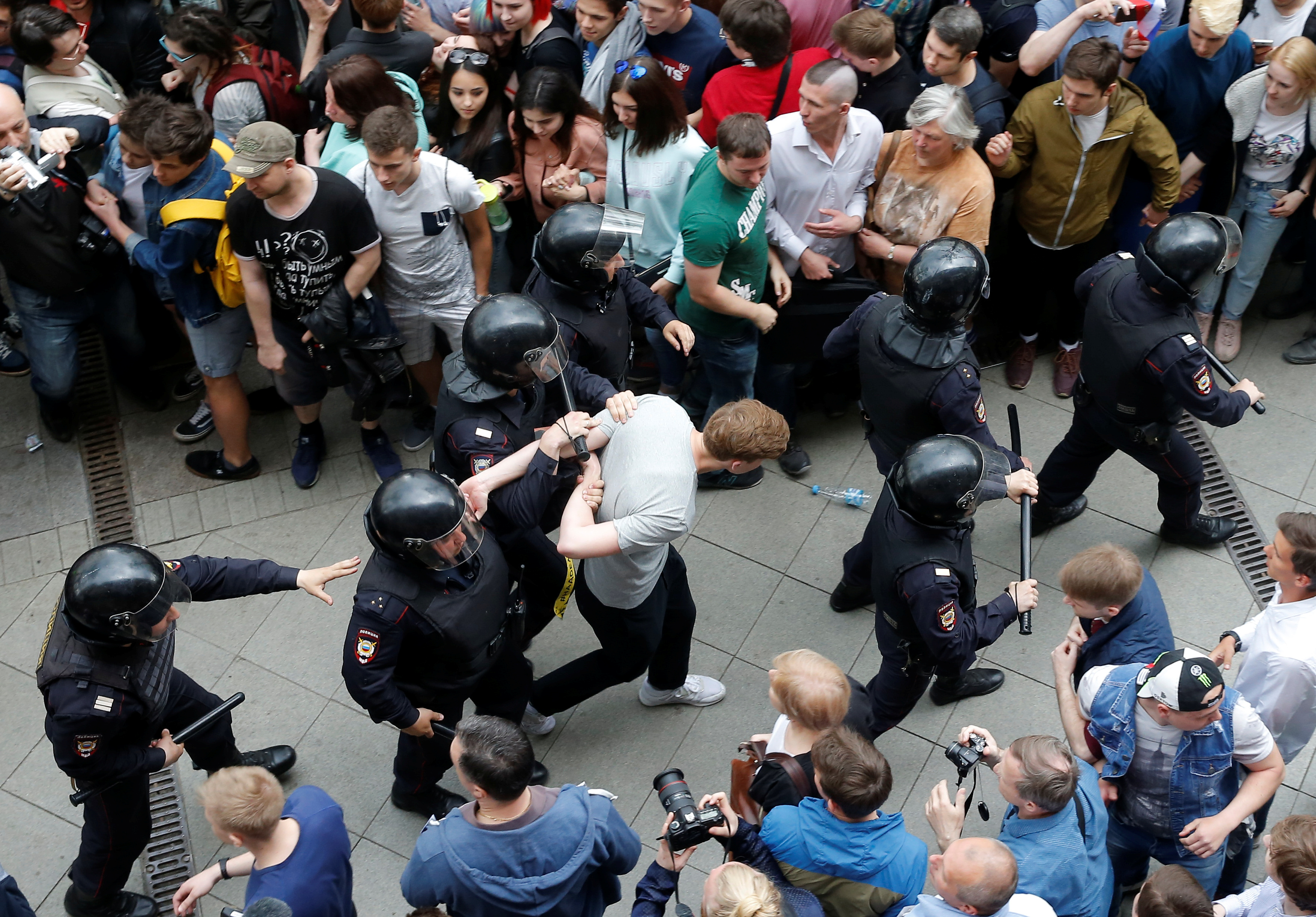
By Susan Heavey and Patricia Zengerle
WASHINGTON (Reuters) – President Donald Trump acknowledged on Friday he is under investigation in a probe of alleged Russian meddling in the 2016 U.S. presidential race and possible collusion by his campaign – and seemed to assail the Justice Department official overseeing the inquiry.
Robert Mueller, the special counsel named by the department to investigate the Russia matter, is now examining whether Trump or others sought to obstruct the probe, a person familiar with the inquiry said on Thursday.
“I am being investigated for firing the FBI Director by the man who told me to fire the FBI Director! Witch Hunt,” Trump wrote on Twitter, referring to his May 9 dismissal of James Comey.
Trump did not identify “the man” but appeared to be questioning the integrity of Deputy Attorney General Rod Rosenstein, the Justice Department’s No. 2 official who appointed Mueller on May 17, supervises the probe and wrote a memo to Trump critical of Comey that preceded Comey’s firing.
Hours later, a source close to Trump’s outside legal team said Trump did not intend his tweet to be confirmation of the investigation but rather was reacting to a Washington Post story on Wednesday about the probe. The source spoke on condition of anonymity.
Rosenstein has said privately he may need to recuse himself from matters relating to the Russia probe because he could become a witness in the investigation, ABC News reported on Friday. ABC said Rosenstein told Associate Attorney General Rachel Brand she would have authority over the probe if he were to step aside.
The Democratic National Committee called on Rosenstein to recuse himself from the Russia matter, but it said authority over the investigation should be given to Mueller and not another Trump appointee.
While the Republican Trump administration initially said Rosenstein’s letter was the reason the president fired Comey on May 9, Trump later said he did so because of the “Russia thing.”
Comey told a Senate panel last week he believed Trump fired him to undermine the Federal Bureau of Investigation’s Russia probe. Comey testified that Trump directed him in February to drop an FBI investigation into former national security adviser Michael Flynn relating to the Russia matter.
Comey testified it would be up to Mueller to decide whether Trump’s action amounted to obstruction of justice, an act that could be cited in any effort in the Republican-led Congress to impeach him and remove him from office.
TRUMP’S LAWYER HIRES A LAWYER
The Russia issue has cast a shadow over Trump’s five months in office.
In another indication of the seriousness of the probe, Michael Cohen, a personal attorney to Trump, said he has retained attorney Stephen Ryan, a former assistant U.S. attorney, to represent him in the ongoing probes. Cohen has received a subpoena from one of the congressional committees looking into the Russia issue.
Rosenstein has authority over the inquiry because Attorney General Jeff Sessions recused himself on March 2 after revelations of previously undisclosed meetings with Russia’s ambassador to Washington while he was a Trump campaign adviser.
Brand was confirmed as the No. 3 Justice Department official on a 52-46 vote in the Senate on May 18, with Democrats lining up against her.
From 2011 until her confirmation, she was a lawyer for the U.S. Chamber of Commerce business lobbying group’s legal arm, which played a major role in marshaling legal opposition to environmental and labor regulations championed by Democratic former President Barack Obama.
Democratic Senator Dianne Feinstein, a Senate Intelligence Committee member, said she was “increasingly concerned” Trump would try to fire not only Mueller, but also Rosenstein.
“The message the president is sending through his tweets is that he believes the rule of law doesn’t apply to him and that anyone who thinks otherwise will be fired,” Feinstein said.
A Trump confidant said this week the president had considered firing Mueller. Rosenstein, who would be responsible for actually dismissing Mueller, told U.S. lawmakers he would fire him only with good cause.
U.S. intelligence agencies concluded in January that Russia interfered in the presidential race to try to help Trump win, in part by hacking and releasing emails damaging to his Democratic opponent, Hillary Clinton.
Moscow has denied any interference. The White House denies any collusion.
Trump kept up his criticism of the investigations, writing on Twitter, “After 7 months of investigations & committee hearings about my ‘collusion with the Russians,’ nobody has been able to show any proof. Sad!”
(Reporting by Susan Heavey, Patricia Zengerle, Lawrence Hurley, David Alexander, Dustin Volz, Roberta Rampton and Julia Edwards Ainsley in Washington; Writing by Will Dunham; Editing by Frances Kerry and Howard Goller)








